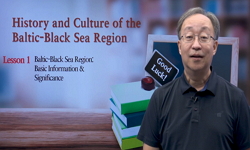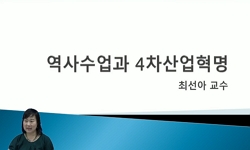This study is an essay intended to consider a few issues relating to women’s history by examining Takamure Itsue(1894-1964). Therefore, it aims to reflect on the fundamental topics of history, such as the implications for history of Takamure’s act...
http://chineseinput.net/에서 pinyin(병음)방식으로 중국어를 변환할 수 있습니다.
변환된 중국어를 복사하여 사용하시면 됩니다.
- 中文 을 입력하시려면 zhongwen을 입력하시고 space를누르시면됩니다.
- 北京 을 입력하시려면 beijing을 입력하시고 space를 누르시면 됩니다.

론문(論文) : 국가주의와 역사의 착종성: 다카무레 이쓰에(高群逸枝)를 중심으로 = Nationalism and the Entanglement of History: Focusing on Takamure Itsue
한글로보기https://www.riss.kr/link?id=A100266236
- 저자
- 발행기관
- 학술지명
- 권호사항
-
발행연도
2014
-
작성언어
Korean
-
주제어
다카무레 이쓰에 ; 국가주의 ; 역사 ; 여성사 ; Takamure Itsue ; nationalism ; history ; women`s history
-
KDC
911.005
-
등재정보
KCI등재
-
자료형태
학술저널
-
수록면
183-215(33쪽)
-
KCI 피인용횟수
0
- DOI식별코드
- 제공처
-
0
상세조회 -
0
다운로드
부가정보
다국어 초록 (Multilingual Abstract)
This study is an essay intended to consider a few issues relating to women’s history by examining Takamure Itsue(1894-1964). Therefore, it aims to reflect on the fundamental topics of history, such as the implications for history of Takamure’s actions as a feminist and female historian, rather than historically studying Takamure as an individual. Takamure Itsue was born in Kumamoto Prefecture on January 18, 1894. Her father was a primary school principal and he taught Chinese classics to his daughter in a countryside blessed by nature. Takamure’s preference for classics and history originates from her father’s Chinese education and her mother’s influence from childhood, which later formed the foundation for her historical research. This study focuses on the 1930s and 1940s in particular, during which period she devoted herself to studying women’s history by immersing herself in it from 1931 onwards. This period coincides with the time when Japan became increasingly involved in the Sino-Japanese War, which makes her indispensable when studying the situations and ideologies of the time. Starting out as an anarchist, Takamure published a number of fanatical texts around 1931 that praised the war, justifying the ‘Pacific War’ as a ‘holy war’ under the logic of ‘marriage harmony(婚姻和協).’ Before then, she had been a defender of the urban lower classes and farm villagers who had fallen into financial difficulties due to the influences of urbanization and industrialization. She advocated for ‘anti-home’ and ‘anti-citizen’ as a critic of modernization more intense than any other. What this study aims to focus on is to examine why she, who had been so cool-headed and had such a critical mind regarding modernity (as shown by ‘anti-home’ and ‘anti-citizen’), could not keep her distance from the modern state and people that had recently come into power. Furthermore, what are the historical and social implications for the course of ‘history’ when an anti-modernist and anarchist converts to being a supporter? These are the two questions this study aims to answer. Takamure found an alternative form of ‘anti-modernism’ (represented by ‘anti-home’ and ‘anti-citizen’) in the ancient kingdom of Japan, stating that the integration of the ancient Japanese kingdom was achieved, not by armed conquest, but by marriage harmony or genealogical ties, which was possible thanks to the existence of the maternal clan since ancient times. Moreover, she declared, “there is no question but that foreign civilizations are inferior to the Japanese civilization that is built on the conscious foundation of the harmony of clans.” As such, her ‘inspiration’ for ‘anti-modernism’ was in the ‘Japanese state’ and ‘people’. Furthermore, Takamure’s assessment that she “thought the true meaning of history is ‘history that gives courage for women to live’ and not history that conveys what happened as it is” shows what she considered the meaning of history to be at a time that was seen as a critical period for Japan. However, there are criticisms of the fact that Takamure’s studies involved ‘creating theories.’ This, perhaps, shows an example of how history is “not something that conveys what happened as it is” but “something that poses ‘current’ problems about ‘the past,’” as merely one of the possible narrations of the past, limited by the ideology of the historian as well as by the methodologies based on that ideology.
참고문헌 (Reference)
1 이효숙, "우리의 기억은 왜 그토록 불안정할까" 알마 2009
2 폴 리쾨르, "역사와 진리" 솔로몬 2006
3 우에노 지즈코, "안부를 둘러싼 기억의 정치학" 현실문화 2014
4 폴 리퀘르, "시간과 이야기 1,2,3" 문학과 지성사 2008
5 프라센지트 두아라, "민족으로부터 역사를 구출하기" 삼인 2004
6 上野千鶴子, "근대가족의 성립과 종언" 당대 2009
7 이규수, "근대 일본의 학제 형성과 역사 지식의 제도화" 한국사학사학회 (27) : 395-431, 2013
8 高群逸枝論集編集委員会, "高群逸枝論集" 高群逸枝論集編集委員会 1979
9 山下悦子, "高群逸枝論ー"母"のアルケオロジー" 河出書房新社 1988
10 "高群逸枝全集1-10" 理論社 1977
1 이효숙, "우리의 기억은 왜 그토록 불안정할까" 알마 2009
2 폴 리쾨르, "역사와 진리" 솔로몬 2006
3 우에노 지즈코, "안부를 둘러싼 기억의 정치학" 현실문화 2014
4 폴 리퀘르, "시간과 이야기 1,2,3" 문학과 지성사 2008
5 프라센지트 두아라, "민족으로부터 역사를 구출하기" 삼인 2004
6 上野千鶴子, "근대가족의 성립과 종언" 당대 2009
7 이규수, "근대 일본의 학제 형성과 역사 지식의 제도화" 한국사학사학회 (27) : 395-431, 2013
8 高群逸枝論集編集委員会, "高群逸枝論集" 高群逸枝論集編集委員会 1979
9 山下悦子, "高群逸枝論ー"母"のアルケオロジー" 河出書房新社 1988
10 "高群逸枝全集1-10" 理論社 1977
11 "高群逸枝全集 第九卷" 理論社 1977
12 "高群逸枝全集 第九卷" 理論社 1977
13 "高群逸枝全集 第九卷" 理論社 1977
14 "高群逸枝全集 第九卷" 理論社 1977
15 "高群逸枝全集 第八卷" 理論社 1977
16 "高群逸枝全集" 理論社 1977
17 栗原弘, "高群逸枝の婚姻女性史像の研究" 高科書店 212 : 1994
18 村上信彦, "高群逸枝の女性史学" 32 : 1980
19 村上信彦, "高群逸枝と柳田国男" 大和書房 1977
20 高良留美子, "高群逸枝とボーヴォワール" 亜紀書房 1976
21 鹿野正直, "高群逸枝" 朝日新聞社 1985
22 上野千鶴子, "高群女性史 どう受け継ぐかーナショナリズムとフェミニズムのあいだで"
23 陸軍少将, "満蒙と国防"
24 西川祐子, "母性を問う,下" 人文書院 1985
25 西川祐子, "森の家の巫女高群逸枝" 新潮社 1982
26 牟田和惠, "戰略としての家族" 新曜社 1996
27 津田左右吉, "岩波日本史講座" 岩波書店 1934
28 寺田操, "對なるエロス 高群逸枝 : 戀愛論,戀愛創生への試み" 砂子屋書房 1983
29 石牟礼道子, "ジェンダーと女性" 早稲田大学出版部 1997
30 栗原弘, "ジェンだーと女性" 早稲田大学出版 部 1997
31 上野千鶴子ほか, "ジェンだーと女性" 早稲田大学出版部 1997
32 橋本憲三, "わが高群逸枝1,2" 朝日新聞社 1981
33 Joan Wallach Scott, "Gender and the Politics of History" Columbia University Press 1988
34 上野千鶴子, ""国民国家"と"ジェンだー"-"女性の国民化"をめぐって" 24 (24): 1996
동일학술지(권/호) 다른 논문
-
- 이화사학연구소
- 니시자와나오코
- 2014
- KCI등재
-
자료소개(資料紹介) : 미국 국가안보국/중앙안보단(NSA/CSS) 문서군(RG 457) - 태평양전쟁기 한국 관련 내용을 중심으로 -
- 이화사학연구소
- 문지현
- 2014
- KCI등재
-
론문(論文) : 일제하 불이흥업주식회사 전북농장의 "舍音"제 운영과 성격
- 이화사학연구소
- 하지연 ( Ji Yeon Ha )
- 2014
- KCI등재
-
론문(論文) : 11세기 후반 『釋摩訶衍論』의 동아시아 유통과 영향
- 이화사학연구소
- 김영미 ( Young Mi Kim )
- 2014
- KCI등재
분석정보
인용정보 인용지수 설명보기
학술지 이력
| 연월일 | 이력구분 | 이력상세 | 등재구분 |
|---|---|---|---|
| 2028 | 평가예정 | 재인증평가 신청대상 (재인증) | |
| 2022-01-01 | 평가 | 등재학술지 유지 (재인증) |  |
| 2019-01-01 | 평가 | 등재학술지 유지 (계속평가) |  |
| 2016-01-01 | 평가 | 등재학술지 유지 (계속평가) |  |
| 2014-01-08 | 학술지명변경 | 외국어명 : 미등록 -> EWHA SAHAK YEONGU |  |
| 2012-01-01 | 평가 | 등재학술지 유지 (등재유지) |  |
| 2009-01-01 | 평가 | 등재학술지 선정 (등재후보2차) |  |
| 2008-01-01 | 평가 | 등재후보 1차 PASS (등재후보1차) |  |
| 2007-01-01 | 평가 | 등재후보학술지 유지 (등재후보1차) |  |
| 2006-01-01 | 평가 | 신청제한 (등재후보1차) | |
| 2005-01-01 | 평가 | 등재후보학술지 유지 (등재후보1차) |  |
| 2004-01-01 | 평가 | 등재후보 1차 FAIL (등재후보1차) |  |
| 2003-01-01 | 평가 | 등재후보학술지 선정 (신규평가) |  |
학술지 인용정보
| 기준연도 | WOS-KCI 통합IF(2년) | KCIF(2년) | KCIF(3년) |
|---|---|---|---|
| 2016 | 0.6 | 0.6 | 0.52 |
| KCIF(4년) | KCIF(5년) | 중심성지수(3년) | 즉시성지수 |
| 0.57 | 0.56 | 0.969 | 0 |





 KCI
KCI KISS
KISS






